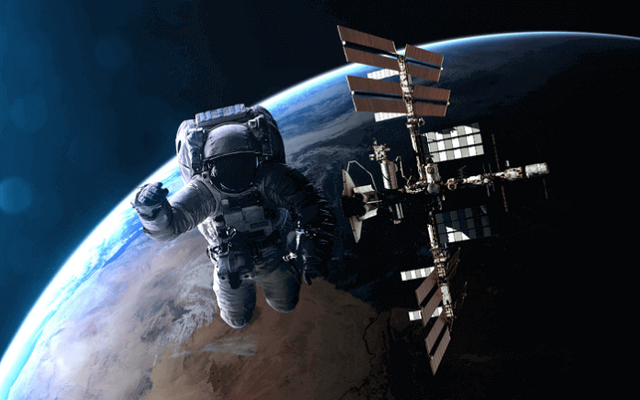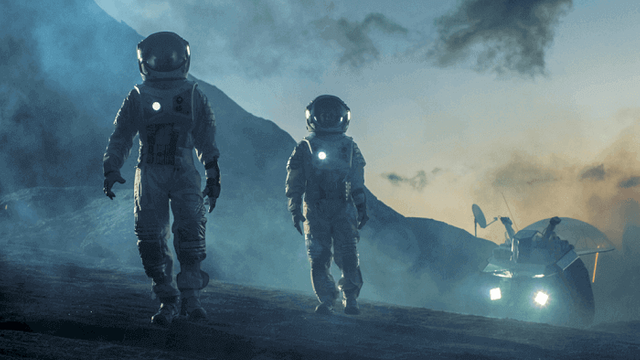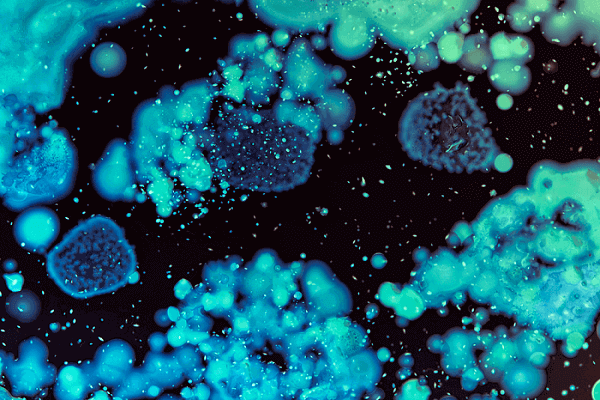Space scavenger: bacteria dispose of waste on the ISS

A microbial-based fuel cell will generate electricity Household rubbish in a space flight will process a special device inside which a colony of microorganisms will be lodged. Its prototype was created by scientists from the Institute of Problems of Chemical Physics of the Russian Academy of Sciences (IPCP RAS). The bacteria will also generate electricity, which astronauts will be able to power various devices on the ISS. Already, this biofuel cell can function autonomously for up to 400 hours. And the sphere of its application will not be limited to one space: the technology of microbiological utilization of organic waste is extremely in demand on Earth today.
Microbial generator
Work on the biofuel element has already begun, Ekaterina Zolotukhina, chief researcher at the Center for Competence at the National Technological Initiative, IPCP RAS, explained to Izvestia.
In space, waste has nowhere to go: you have to return them to the ground or, which is highly undesirable, to dump into space. Therefore, the creation of such a device is extremely important, - she said. - I would like the waste to be destroyed on its own, and this is also beneficial. We suggest using a container in which microbes live.
It is assumed that astronauts may put there household waste - for example, cellulose napkins. Microorganisms will begin to feed on such garbage. At the same time, the installation with two electrodes will be connected to the container, and the accumulator will play the role of the accumulator - it will be possible to use the electricity generated during recycling to power the various devices of the ship.
It is assumed that astronauts may put there household waste - for example, cellulose napkins. Microorganisms will begin to feed on such garbage. At the same time, the installation with two electrodes will be connected to the container, and the accumulator will play the role of the accumulator - it will be possible to use the electricity generated during recycling to power the various devices of the ship.
Energy from trash
A device weighing about 2 kg is a relatively small box in which electrodes are placed at both ends - the anode and the cathode. The box itself is divided into two parts using a membrane. Bacteria act as a catalyst for the electrochemical reaction - in the space around the anode, they “eat” fuel, which is served by household waste.

As a result of processing, in particular, cellulose, free electrons are produced. They move along the chain to the cathode, where they interact with an oxidizing agent, which can be any known substance, such as oxygen. As a result of the oxidation reaction coupled with the oxidizer reduction reaction, electrical energy is generated.
Not only wipes, but also any other biodegradable waste, both solid and liquid, can serve as fuel. And astronauts will be able to store electricity generated during their oxidation in stationary batteries, capacitors or redox batteries for further use.
Scientists note that the created prototype of a biofuel cell can operate autonomously from 100 to 400 hours depending on the type of fuel. When the device runs for 400 hours or more, it will be filled with new bacteria. The cycle can be repeated many times.
At the same time, 400 hours is far from the limit, the device will be further improved, the researchers emphasize. This will require the organization of a group of scientists and engineers from related industries - microbiology, genetics and electrochemistry.
Bacteria for space
The main problem is that bacteria, like all living organisms, are dying. They live very briefly, they are capricious in terms of living conditions, - said Ekaterina Zolotukhina. - This concerns not only single individuals, but also entire colonies. Now we are picking up a certain symbiosis of microorganisms that would live in their own small ecosystem. Such systems are good in that they are autonomous and work on their own. However, the power that is produced is still small. Our task is to understand how it can be increased.
In order to select the optimal composition of colonies of microorganisms that will be able to fly into space in the future, scientists from the Institute of Physics and Chemistry of the Russian Academy of Sciences began to work with the Federal State Unitary Enterprise
“State Research Institute of Genetics and Selection of Industrial Microorganisms”. Previously, there they were already engaged in the development of biofuel elements based on Shewanella - anaerobic bacteria that are active in an inert atmosphere and die in the air. A group of researchers plans to experiment with existing microbes and create genetically modified bacteria with desired properties.
“Our team has already begun to cooperate with the Institute of Genetics,” said the head of the Center for Competence of the National Technological Initiative, established at the IPCP of the Russian Academy of Sciences, Yury Dobrovolsky. - With Shewanella bacteria, it is difficult to conduct experiments on Earth, they die during transfer from a test tube to a test tube, they are difficult to examine under a microscope. But in space, they could express themselves, it would be interesting to explore their capabilities outside the ISS.
Head of the Department of Organic and Ecological Chemistry at TSU, Gulnara Shigabaeva, told Izvestia that the method of generating electricity from microorganisms is not new in itself, but no one has yet applied such technology in space.
It is advisable to use anaerobic bacteria in space conditions. And carbon filaments are desirable as electrodes. As nanowires, they will increase the efficiency of collecting excess electrons resulting from the metabolism of microbes, she explained.

Today, microbiological decomposition of the organic part of the waste is of high demand on Earth, said Mikhail Vostrikov, head of the Waste Disposal and Disposal Center at St. Petersburg Electrotechnical University “LETI”. For example, when neutralizing hydrocarbon-containing wastes - oil sludge, oil-contaminated soils, etc.
Research in this area, according to the expert, is going around the world. The main problem is known - the low survivability of bacteria. As for the possibility of creating in the future a standard biofuel element, then, in the opinion of Mikhail Vostrikov, this idea is worthy of any continuation of scientific research.
Read More About space
I appreciate when people make quality posts. Thanks!
Thank you for this nice comment
Congratulations @alltcoin! You have completed the following achievement on the Steem blockchain and have been rewarded with new badge(s) :
Click here to view your Board
If you no longer want to receive notifications, reply to this comment with the word
STOP